Forced solutions don’t lead to stability of the region
Monday, 17.09.2018.
16:30
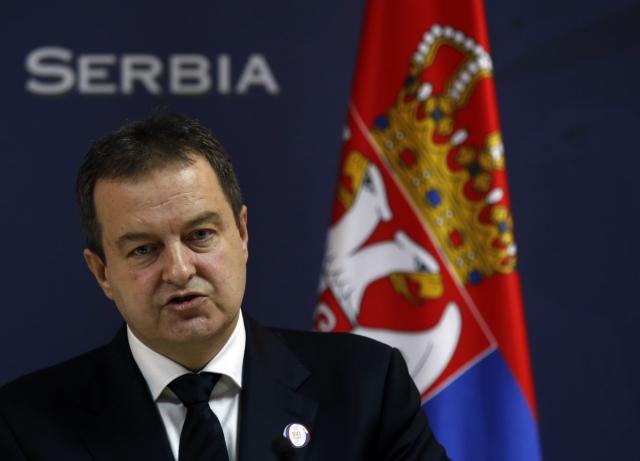
Forced solutions don’t lead to stability of the region
We talked with Ivica Dačić, Minister of Foreign Affairs and First Deputy Prime Minister of the Republic of Serbia, about possible outcomes of current negotiations on the status of Kosovo, the process of EU integrations and relations in the region.Should we take Serbian Government’s latest messages as a signal that decision will be made soon, maybe even by the end of this year?
It is early to talk about the outcome of the dialogue between Belgrade and Priština. I think that after a long period where the dialogue was led on lines of misconception – one misconception that all is lost, and the other misconception that everything is ours and that we should not stand down, our citizens, and the region as well, are finally in a stage where we can talk about models for a viable solution. That is why expectations regarding the outcome of the dialogue are high.
What’s certain, and what Serbia demonstrated with President Vučić’s visit to Kosmet, is that Serbia has initiated the application of the Brussels Agreement with full responsibility, and it has met its obligations and offered a hand for exchange of ideas on finding a solution, so we don ‘t leave this Gordian Knot as a legacy for our children. Unfortunately, for almost 5 years Priština has failed to meet its main obligation, which is to form a Community of Serb Municipalities, and as we could see during the President’s visit to Kosmet, they did a lot to obstruct the visit, which left our offered hand hanging in the air.
I think that Serbia proved that it’s ready to lead an essential dialogue to find a permanent solution for the matter of Kosovo and Metohija, but only through achievement of a sustainable compromise. In that sense, it is unacceptable for Serbia to recognize the unilaterally proclaimed independence of Kosovo and Metohija as the outcome of this dialogue, because then this would not be a dialogue for finding a permanent solution, but one that would lead to acceptance of the policy of a done deal made by Priština and a part of the international community, and, I repeat, Serbia cannot agree with that. Also, it is unacceptable for Priština to get a wider autonomy within Serbia. So, these two options definitely won’t be the topic of our talks.
Serbia will continue to demonstrate readiness and a good will to talk, but it will also firmly defend its interests in Kosovo and Metohija. We now have a trend where some countries are withdrawing their recognition of the unilaterally proclaimed independence of Kosovo and Metohija, which shows that the matter is not resolved and that Priština’s independence is not a done deal, as Priština and a part of the international community want to present it to be.
That is why, when talk in domestic and foreign public only comes down to how we want to change borders – what exactly does that mean, because does anyone know where our borders lie today? This is a dialogue that must secure the rights of our citizens in Kosmet, and it’s about us doing everything we can, and saving everything we can in Kosovo and Metohija, because our situation is not the same, just like it wasn’t the same thirty, fifty or sixty years ago. The idea is that we keep our people safe, and time is never ideal. To preserve our country, to preserve our institutions, the idea is to preserve peace and to try, at least try and establish the bridges of trust towards the Albanians, to strive towards agreement even when we know it’s practically impossible, because everything else leads us to abyss and disaster.
What repercussions could a potentially favourable or unfavourable outcome of these negotiations have – in the sense of how European interlocutors see it – on the stay of international forces in Kosovo? What are Serbia’s options if this happens?
As I said, it is ungrateful and too soon to talk about this, since the process is in progress and nobody can predict the outcome of the dialogue with certainty. Let me repeat – two options are not acceptable – recognition of KiM by Serbia and KiM’s autonomy within Serbia recognized by temporary institutions in Priština. Other modalities are on the table. We are witnesses that one member of the UN Security Council does not support, or does not contribute to the agreement between Belgrade and Priština, it is in fact doing all it can to avoid it from happening. However, we are also witnesses of changes in positions of a part of international community, or at least consideration of different proposals which are on the table.
International politics is a dynamic process, not a condition, and we will continue working on persuading our friends and partners to support the result of the dialogue between Belgrade and Priština, because this will be the only compromising and viable solution. Nothing forced or imposed will contribute to long-term stability of the region. Constructive aid is always welcome, but obstructions are not. If Serbia has accepted the price for its wrong decisions, I think that other countries should also eliminate inertia in their international politics, because times change. There is no more room for autopilot in politics.
Could a change in global relations between President Trump, Europe and China and Russia, which we are witnessing, result in a slightly different observance of the Kosovo issue or is this an expected matter of lack of understanding of the manner in which US foreign politics is conducted?
We are witnessing turbulent times. United Kingdom is leaving the European Union, US administration is making serious shifts in its foreign policy, Russia is no longer weak like it was in the 1990s, and Chinese economy is slowly becoming a competition the West. We are even witnessing new relations between USA and North Korea… Times are new, the world is changing. And I believe that Serbia must look for its place in these new relations. Sometimes I think that, due to turbulent times, we forget that we are the founder, and a proven friend and partner in the Non-Aligned Movement. We forget that as a nation and a country, we gave countless victims for peace in World War I and II. And then, it’s sometimes easier to remind our partners… Our flag was the first foreign flag to be placed on the White House, and our partners in the US have paid their tribute at the 100th anniversary. I mean to say that the world is changing, and we have to change with it. To understand the changes, keep up with them, but first of all, we have to work on ourselves and our society.
To what extent do political tensions with Croatia reflect on our cooperation in other fields? Can we consider a disruption in these relations to be our new reality?
I don’t think that intensified rhetoric in this period between Serbia and Croatia is characteristic only for us. I am certain that other countries have their ups and downs in relations with their neighbours, just like we do.
There is no doubt that we have a different vision of the past. What’s important is that I see no reasons for any kind of conflicts in the future. We have no interests that could be contradictory in the future. I am constantly saying that behind our papers, our words and inter-party or interior politics, is the life of everyday man, his everyday life – which means jobs, infrastructure, education we provide to them, culture we allow them to enjoy… Not to mention mixed families (two nationalities)… how will these families live if we allow irresponsible politics to create a distance between our countries? Our nations are intertwined and we don’t have the luxury not to think about our citizens and their families.
To what extent will the probable accession of Macedonia to NATO membership represent a challenge for Serbia’s position on neutrality?
Serbia has no aspirations to join any military alliance, including NATO. Serbia has a clear and principled position that all international disputes should be resolved through political and diplomatic means, and that it is necessary to look for compromising solutions that are viable on the long run and contribute to peace and stability not only in a certain region, but outside its borders as well.
In that sense, Serbia has a positive stance towards the resolution of the dispute between Greece and Macedonia regarding the name. It is a bilateral dispute, one that Serbia did not take part in, but it wanted to see a positive outcome in the sense of an agreed solution, which refers to any agreement that parties in the dispute achieve. This certainly represents an incentive for improvement of stability in the region, and a factor that might eliminate potential tensions.
As for Macedonia’s membership in the NATO, Serbia respects foreign political priorities of other countries, as we expect our priorities to be understood and respected the same way. As we know, Serbia is a member in Partnership for Peace, like other partner-countries, but with a clearly profiled politics of military neutrality. At the same time, in the interest of peace and security in the region, Serbia wants to develop its cooperation with NATO on these grounds, which is not an obstacle for cooperation with other partner and friendly countries in the world, including the Russian Federation, China and other countries, especially those that strongly support Serbia’s priorities. Partnership cooperation with NATO is in the interest of peace and stability in the region, but its goal is also the protection of Serbia’s vital interests in Kosovo and Metohija, where KFOR Mission, which has a mandate according to Resolution 1244 of the UN CS, is stationed.
Do you think that European desire to accelerate the process of Euro-integrations with the possibility that the first Balkan countries become EU members in 2025, is a thing of the past today? Will we wait after Sofia for European leaders and Balkan leaders to meet again just like we waited after Thessalonica?
The pace of Republic of Serbia’s accession to European Union significantly depends on the dialogue between Belgrade and Priština, which is currently in its key stage.
Accession to European Union remains one of the priorities of Serbia’s foreign politics. We opened 14 chapters in the negotiating process for now, 2 of which are temporarily closed. I would like to point out that we don’t see membership in the EU as a goal in itself, but we see the process of negotiations as a driving force for implementation of radical reforms. We hope that the dynamics of negotiations will be accelerated, and that all the negotiating chapters for which conditions are made will be opened in the near future, and that we will be allowed to use our focus and dedication to utilize the indicative date for accession until 2025.
Despite the obstacles on the road to accession to EU, positive developments have appeared over this past period as well, like the presidency of the Republic of Bulgaria in the Council, which endeavoured to keep the matter of the Western Balkans high on the agenda, and the publishing of European Commission’s Strategy titled “A Credible Enlargement Perspective for and Enhanced EU Engagement with the Western Balkans”, where 2025 is mentioned as the possible date for membership of Serbia and Montenegro in the EU. Continuation of the process of European integrations of the Republic of Serbia, and of the entire region, is encouraged also by the fact that Republic of Austria, presiding the EU Council in the second half of 2018, included the matter of safety in SEE, and in this context, achievement of specific progress of WB in European integrations, among priorities during its presidency. We expect future presidencies, including Romania as our direct neighbour, will keep the topic of enlargement in their agendas, as one of the most successful EU policies to this day, which, according to our analyses, does not in any way conflict with the frequently mentioned need for reform of EU itself.
How do you rate the achievements of the Berlin Process? Will they have a more permanent influence on construction of security, economic and infrastructural connections in the Western Balkans?
The Berlin Process was envisioned as an intergovernmental initiative for cooperation with the goal to revitalize multilateral ties between the Western Balkans and EU countries, but also to improve regional cooperation of countries of Western Balkans, primarily in the field of infrastructural and economic development.
The last summit in London brought the topic of cooperation and exchange of information regarding organized crime, illegal finances and cash flows, money laundering and terrorism. The summit also opened the topic of issues regarding the search for missing persons, as well as talks about gender equality.
I think it is important to maintain communication in this format, precisely because these are life’s issues that neither country can provide an answer to on its own. Herein lies the importance of the Berlin Process.
What are foreign policy priorities of the Ministry in the future period?
It’s certainly work on maintenance and deepening of relations with all our partners and friends, even with those with which we don’t always share the same opinion or have the same interests. Don’t forget that we renewed neglected relations with countries of Latin America, Africa and Asia, and we will continue to work in that direction.
As a result of continuous efforts to preserve the territorial wholesomeness of Serbia by presenting our arguments based on international law and the UN Charter, withdrawal of recognition of unilaterally proclaimed independence of Kosovo and Metohija by Surinam, Burundi, Liberia and Papua New Guinea, is something that definitely stands out. And of course, we will continue our activities regarding the withdrawal of unilaterally proclaimed independence of Kosovo (UPIK).
In order to improve the position of citizens of the Republic of Serbia abroad, we will continue the continuous implementation of activities tied to harmonization of legislation with EU regulations, visa liberalization, adoption of international agreements, and further improvement of Serbia’s relations with the diaspora and with Serbs in the region.
Capital expenditures are planned for two projects in the period from 2018–2020 – the project for construction of Diplomatic-Consular Mission (DCM) of the Republic of Serbia in Canberra, Australia, i.e. real estate acquisition project for DCM of the Republic of Serbia in Skopje, Macedonia. Also, within its regular budget funds, in 2018, Ministry of Foreign Affairs plans to acquire a real estate for the needs of DCM of the Republic of Serbia in Sarajevo, Bosnia Herzegovina.
To what extent did austerity measures and the ban on employment affect the work of the Ministry? How do they affect the efficiency of our diplomacy and its positioning in relevant places of decision-making?
Of course they affect it, but I have to thank the employees at the Ministry for their enhanced engagement. The Ministry I lead covers literally 24 time zones. This means that, in cases of emergency, you have to have people at their work posts throughout the day and night, as well as people in DCMs who conduct several jobs due to our increased diplomatic activity.
Still, I think that the most important thing is that reforms gave results. Fiscal consolidation and macroeconomic stability were achieved through implementation of difficult and comprehensive reforms, which lead to a drop in the level of public debt, with surplus in the budget. With all this, Republic of Serbia managed to post a high economic growth, which will, according to forecasts from the European Commission and global financial institutions, record the highest result in the past 10 years – 4.6%.











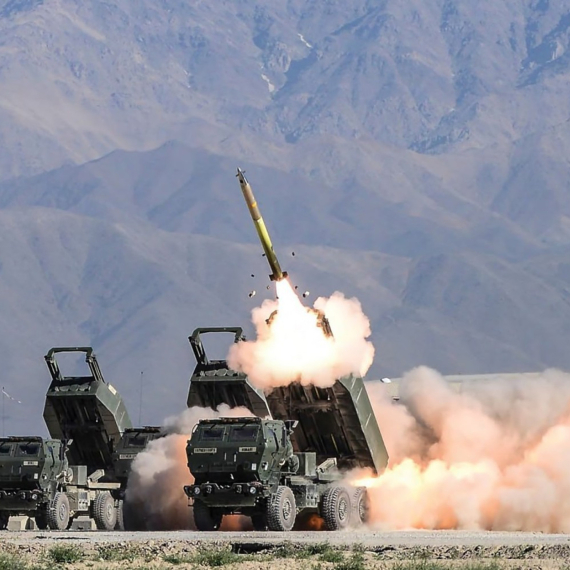

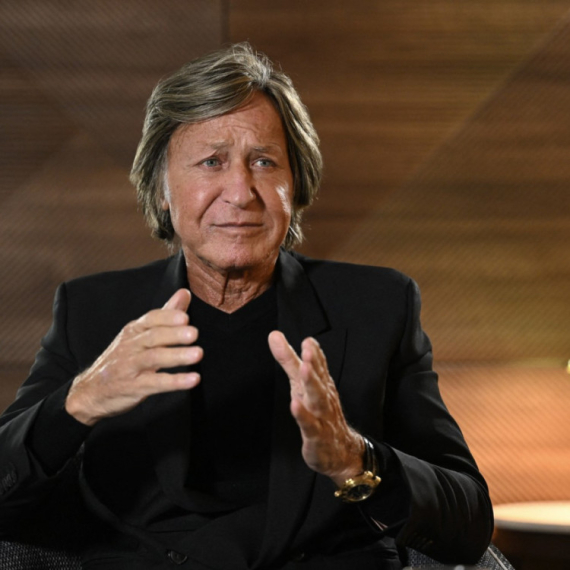
























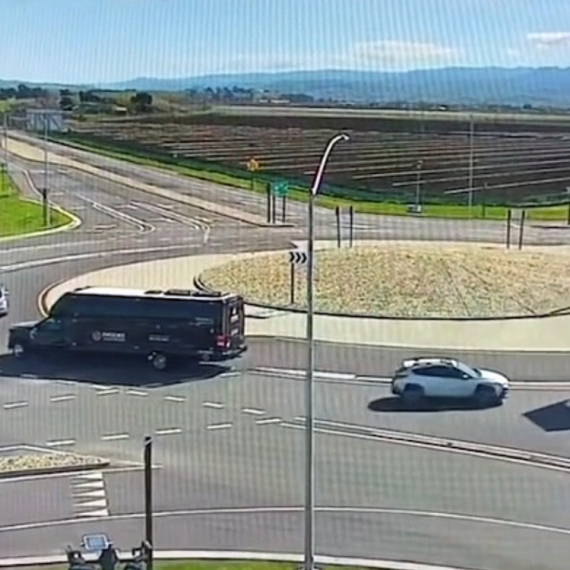

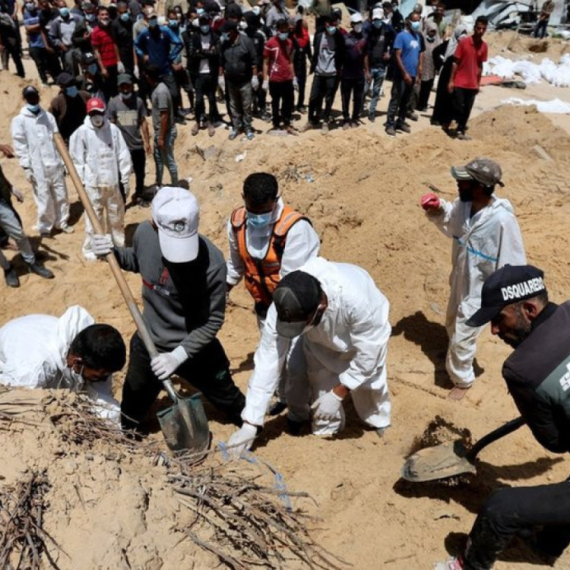





Komentari 1
Pogledaj komentare